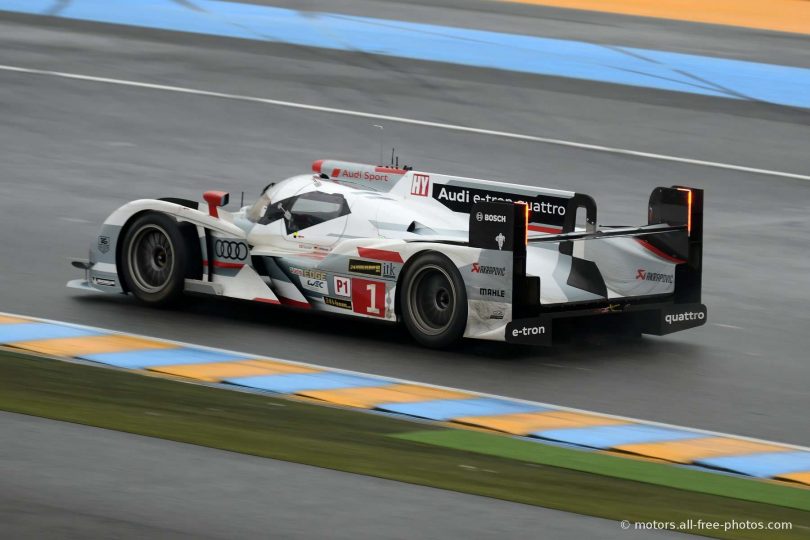The future of supercar racing is going green, thanks to Formula E. After it’s inaugural season in 2014 in Beijing, support has grown for the environmentally friendly racing format.
Chairman of the Australian Formula E committee Valdis Dunis is positive of the future of Formula E.
“I think we should set up for the next generation and the next technology,” he said.
Formula E teams were quick to jump at the format, showcasing their electric car technology.
Porsche, BMW, Audi and Mercedes-Benz are just some of the teams that make up the race.

Porsche’s future Formula E car at Allianz E Village
Former Formula 1 driver turned climate change activist Nico Rosberg became an investor of Formula E in 2018.
“I’ve become very interested in the e-mobility movement and its potential to positively impact our society and our planet,” he said.
Nico Rosberg Visits Formula E in Hong Kong
Since its inauguration, changes have been made to the format.
In Formula 1, pit-stops allow drivers to time their runs and race more strategically.
Originally, Formula E cars were swapped mid-race, the equivalent to Formula 1 pit stops, however this element was removed in the 2018-19 season.
Instead, the electric supercars now are fitted with a dual-power mode, with the high-power mode offering drivers a one-second per lap advantage to be used strategically be the drivers.
Some Formula 1 purists believe that the electric version of supercar racing lacks the thrills and excitement of standard of the traditional fueled-up races.
CEO of Mercedes motor sport Toto Wolff, for example, said he “didn’t believe Formula E could make it”.
Top 10 Overtakes In Formula E History! | ABB FIA Formula E Championship
Coming to Australia?
Formula E has already laid tracks in major cities such as London, Paris, Shanghai and New York but an Australian event is yet to be marked in the calendar.
According to Audi’s Formula E team Principal Allan McNish, “there’s been discussions” about a race in Australia however nothing has been confirmed.
“We know [Australia] can put on a fantastic show,” McNish said, speaking at the Berlin E-prix.
Victoria does not plan to host the Formula E as it already hosts the Formula One Grand Prix, Australian Motor Cycle Grand Prix and four rounds of the Australian Supercar Championship said a Victoria Government spokesperson.
Reports confirm that Formula E organisers spoke to Perth, Adelaide and Sydney about hosting a race in the future. Formula E’s head of partnerships David Warren said Adelaide was a front runner due to its “attitude of embracing the future.”
Minister for Trade, Tourism and Investment, David Ridgeway, said the government was not looking to pursue a Formula E race due to its significant cost.
In order for Formula E to go ahead in Australia it would need about $10 million in sponsorship but Dunis predicts the benefits for the city would exceed $45 million.
None the less, our distance to Europe seems to be the main roadblock on the track to a Formula E race.
On average, all-electric vehicles emit an average of around 4,450 pounds of CO2 each year. Conventional gasoline cars in comparison, will emit over twice that amount annually.
In terms of Formula One, the racing only emits 0.3% of the events total carbon emissions. It’s the travel to and from the event that makes Formula One a colossal air pollutant.
Jet fuel is a major cause of CO2 emissions. To put into context, the jets that bring the teams to and from the race use up to 5.5 million gallons of fuel to make their trip. And each gallon of fuel creates up to a total of 21 pounds of carbon dioxide.
Eco-friendly racing
On average, all-electric vehicles emit an average of around 4,450 pounds of CO2 each year. Conventional gasoline cars in comparison, will emit over twice that amount annually.
In terms of Formula One, the racing only emits 0.3% of the events total carbon emissions. It’s the travel to and from the event that makes Formula One a colossal air pollutant.
Electric cars emit no direct emissions into the environment. And in comparison to gasoline-powered vehicles, the eco-friendliness of adopting electric cars is a step in the right direction.
With the pressure of global targets to cut carbon emissions. Formula One may have to embrace electric power one day. Joining the movement to mitigate the imminent threat of climate change.
Written by Katelyn Kalafatis, Emily-Layne Kapetanovic and Jonathon Magrath




